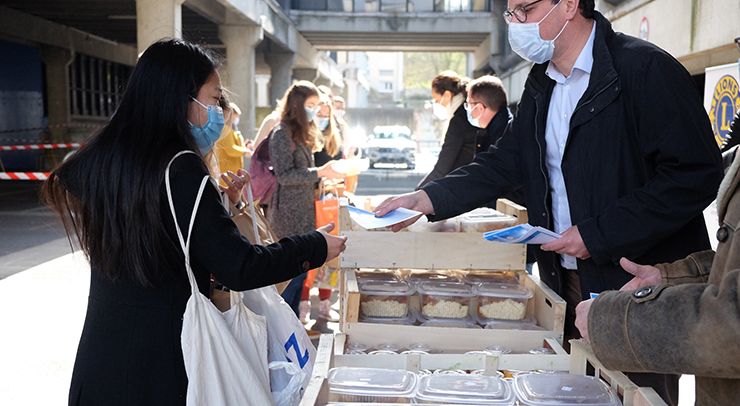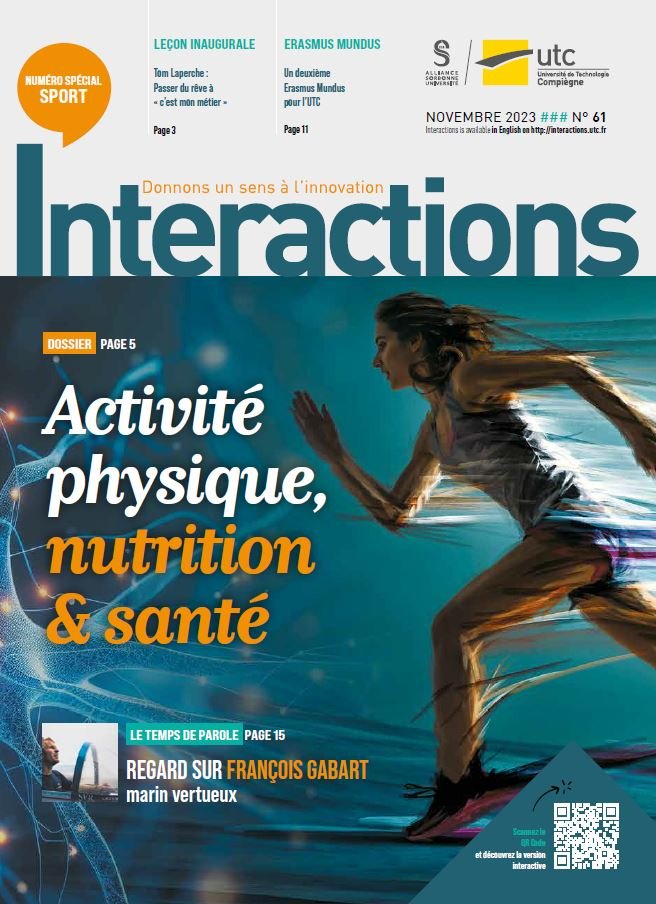
Meal distribution, COVID testing, course tutoring: in this period of COVID-19, student life at UTC has reinvented itself.
No one is hiding the fact that in recent weeks the sanitary crisis has had a heavy and significant impact on society but also on everyone’s morale.
The reopening of certain places and venues to the public comes as a real relief for everyone. But for the students the situation has had an even more bitter taste; that of doubts, fears and apprehension for their future, this combined with an even more sour sensation; that of precariousness. For many, the successive lockdown measures have meant the end of student jobs and therefore stopped a very large source of income. For many, the successive confinements and reconfigurations have meant the end of student jobs and therefore of a very important source of income. Consequently, the situation, already complicated for student morale, has also become complicated for their financial resources.
At UTC, the situation was taken very seriously by the University’s administrative and management teams. “From the beginning of the health crisis last year, measures were taken to ensure the support and well-being of the students,” explains Karine Sliwak, Head of the engineering apprenticeship programme. And a few months ago, the school took a further step by appointing three “solidarity referents”, including Karine Sliwak herself. Their role? To develop and coordinate solidarity for students and to be the first point of contact for those experiencing difficulties. “We have set up an e‑mail address where students can write to us as soon as they encounter the slightest difficulty, whether financial, psychological or of any other kind,” continues Karine Sliwak. We then set up actions to support them.
A concrete example? “The financial difficulties experienced by students. It is quite normal for a student to face difficulties, especially when they no longer have a student job,” she continues. “We have put in place extraordinary support so that they can have extra money when they need it. But other systems exist for specific needs. Computer loans, for example, for students who have difficulties with their existing computer. For psychological discomfort, the Solidarity Advisers can accompany students to professionals who can help and support them”. And the solidarity advisors also set up distribution actions, whether it be foodstuffs (in conjunction with the student association EPI), distributions of hygiene and health products and basic necessities, in conjunction with partner companies. Some ofthe city’s restaurants also joined the operation to offer meals to students. Couscous or paella were offered to students. “These operations are open to all, with priority given to students who have the most financial difficulties.”
But the logic of solidarity went further forthe students. They created an association, mischievously named TUT’UT, to create support workshops and exchanges between students on their courses.




